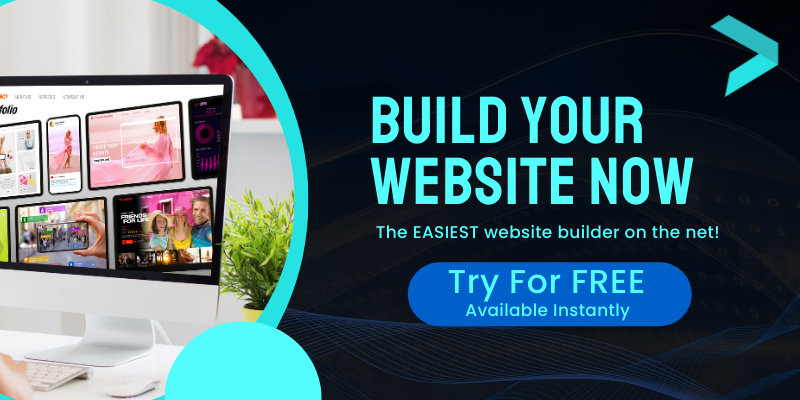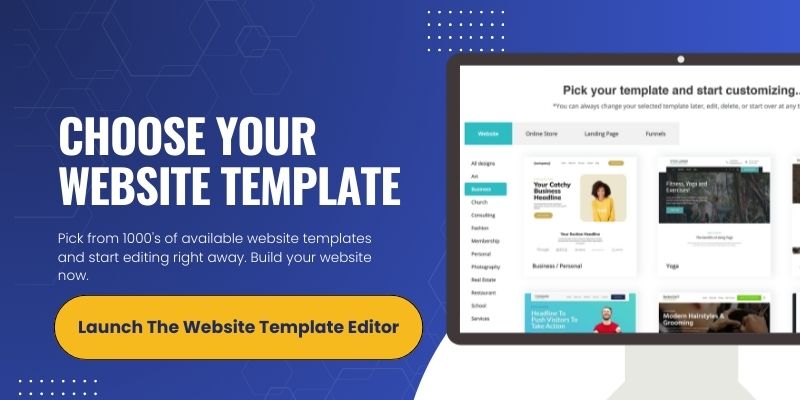Understanding Template-Based Website Builders
What They Are and How They Work
So, let’s dive into the good stuff! Template-based website builders are platforms that allow you to create websites using customizable templates. This means you don’t need to be a coding wizard; instead, you can pick a design that resonates with your style and just plug in your content. Trust me; it’s way more fun than wrestling with HTML.
These builders come with a user-friendly interface and drag-and-drop functions. Imagine rearranging your furniture, but instead, you’re rearranging your website. It’s as easy as that! You get to focus on making your site look awesome while the platform deals with the tech stuff behind the scenes.
Whether it’s a blog, eCommerce site, or a portfolio, templates give you a solid foundation. The initial setup process can be a breeze, letting you concentrate on what you want to say or sell rather than getting lost in the coding labyrinth.
Top Features of Template-Based Website Builders
User-Friendly Interface
One of the standout features of these platforms is the user-friendly interface. I can’t stress enough how crucial this is, especially if you’re just starting. Many platforms offer intuitive dashboards that keep everything neat and tidy. You won’t feel like you’ve stepped into a tech spider web!
It’s all about drag-and-drop simplicity, allowing you to move elements around effortlessly. All those training wheels make designing your site not only easy but kinda fun! You can experiment with various layouts without the fear of messing everything up.
And here’s the kicker: most of these builders also come with built-in tutorials and a support community. So when you do hit a bump in the road, there’s usually a helpful soul ready to guide you back on track!
Customization Options Galore
Templates and Themes
Now, let’s talk about customization. One of the biggest perks is the variety of templates and themes available. Whether you want a sleek, modern site or something more whimsical, there’s a high chance you’ll find a template that speaks to you. Trust me, it makes life a lot easier.
You can opt for pre-set themes or customize colors, fonts, and layouts to match your personal brand. This flexibility allows you to personalize your space until it truly feels like “you.” Don’t just look like everyone else; stand out!
Plus, many platforms update their themes regularly, giving you fresh design options without the need to start from scratch every time. It’s like getting a wardrobe refresh without an overhaul of your closet!
The Balancing Act: Affordability and Functionality
Pricing Plans
Let’s not forget about the elephant in the room—pricing! Most template-based website builders offer various plans that cater to different budgets. You’ll often find free tiers with basic features, which are great if you’re just dipping your toes in the water.
When you’re ready to take things up a notch, paid plans unlock more advanced features. These can be game-changing, especially if you’re looking to run an eCommerce site or need specific functionalities down the line. And believe me, cutting corners on a professional site just isn’t sustainable!
Make sure to weigh the pros and cons of each pricing tier. It’s essential to align the cost with what you really need. Nobody wants to overspend on bells and whistles they won’t use!
SEO and Marketing Tools
Built-In SEO Features
If you’re serious about online visibility, SEO is the name of the game. Thankfully, many template-based website builders come packed with built-in SEO tools. This makes it significantly easier to optimize your site without needing to hire an expert or study a bunch of SEO guides.
These platforms typically guide you through setting up metadata, alt tags, and more. Plus, some offer analytics tools that help you monitor how your site is performing. Knowing how your audience interacts with your content is super valuable, right?
Taking advantage of these features can make a huge difference in your reach. You’re not just creating pretty pages; you’re building an online presence that can grow over time. It’s all about working smarter, not harder!
Final Thoughts on Choosing the Right Platform
Evaluating Your Needs
As you think about jumping into the world of website building, take a moment to evaluate your specific needs. What is your primary goal? Are you building an online business, a blog, or showcasing your portfolio? Knowing this clearly can help you choose the right platform.
Consider the level of customization you desire versus how user-friendly you need it to be. Some platforms offer more flexibility but can be tricky to use, while others are straightforward but might not allow for extensive personalization.
At the end of the day, the right choice for you will depend heavily on where you see your website going in the future. Take your time to explore options and don’t hesitate to test a couple out before committing!
FAQ
1. What is a template-based website builder?
A template-based website builder is a platform that allows users to create websites using pre-designed templates which can be customized with ease, eliminating the need for coding knowledge.
2. Are these platforms suitable for beginners?
Absolutely! Template-based website builders are specifically designed to be user-friendly, making them perfect for beginners who want to create a professional-looking site without extensive technical skills.
3. Can I customize my template?
Yes! Most template-based builders offer a range of customization options, allowing you to alter colors, fonts, layouts, and even add your elements to make the site truly yours.
4. What costs are typically involved?
Costs can vary widely. Many platforms offer free tiers, but paid plans usually range from a few dollars a month to higher rates depending on features like advanced SEO tools, eCommerce functions, and more.
5. How do I choose the best website builder for my needs?
Think about your goals and what features are essential for your website. Consider ease of use, customization options, and cost. It helps to try out a couple of platforms through free trials before making a decision.

